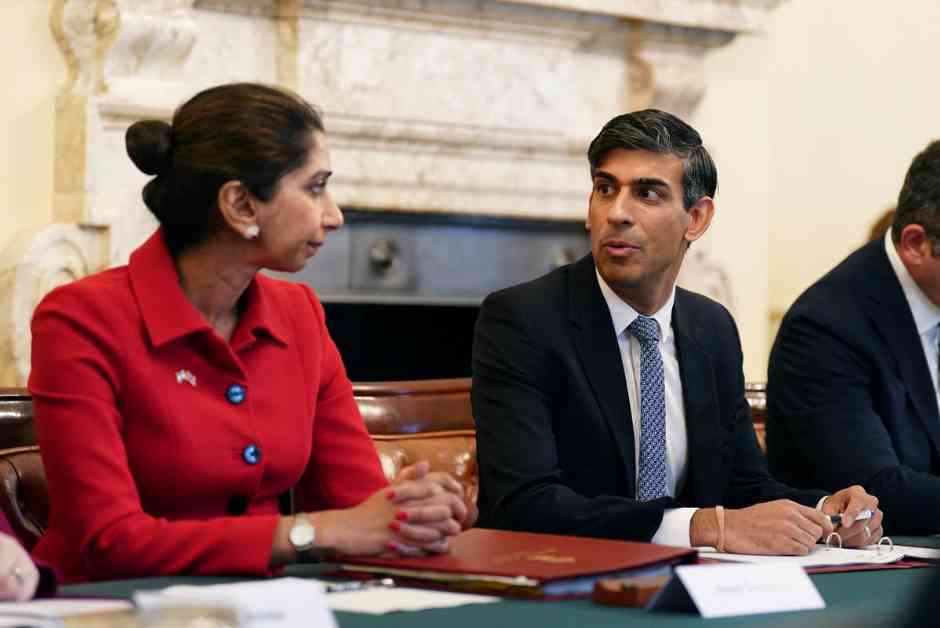Suella Braverman, the former Home Secretary, has come under fire for her comments regarding the policing of a pro-Palestinian march in a report that she herself commissioned. The criticism stems from her public lambasting of the Metropolitan Police, pressuring them to ban the pro-Palestinian march, which ultimately led to her dismissal from government.
Chief Inspector of Constabulary Andy Cooke conducted an investigation into the matter and found that Braverman’s comments should have been delivered in private if deemed appropriate. He also highlighted how police chiefs often face improper interference from significant political figures, calling on senior politicians to exercise caution when making public statements that could impact the public’s perception of police impartiality.
The incident in question revolved around the Armistice Day march, where Braverman accused the Metropolitan Police of bias and playing favorites in policing protests. Despite her efforts to have the march banned, the force stated that they lacked the legal authority to do so due to a lack of intelligence indicating any risks associated with the event.
The fallout from Braverman’s actions resulted in her dismissal by then-Prime Minister Rishi Sunak, who accused her of stoking tensions ahead of the protests in London. In an unauthorized opinion piece for The Times newspaper, Braverman criticized the police for their handling of the pro-Palestinian march, alleging double standards in their response to different groups of protesters.
Following Braverman’s dismissal, a report was commissioned to examine the issue of political interference in police matters. The report, spanning 129 pages, highlighted the delicate balance between operational independence for police forces and the need for democratic accountability and governance. It called for a clear definition of operational independence and emphasized the importance of avoiding improper political interference in policing decisions.
The report also shed light on an incident involving Prime Minister Rishi Sunak, who initially criticized a police officer for their handling of a confrontation at a pro-Palestine protest. Subsequent video footage revealed that the officer had acted reasonably, prompting Sunak to express confidence in the Metropolitan Police Commissioner Sir Mark Rowley. This incident underscored the need for senior politicians to have full facts before making public statements that could impact police impartiality.
In addition to addressing the issue of political interference, the report highlighted concerns raised by some police and crime commissioners (PCCs) who mistakenly believe that chief constables are their employees and must implement their police and crime plans. This misconception can lead to increased pressure on chief constables to appease PCCs, compromising their operational independence.
Chief Constable Gavin Stephens, chairman of the National Police Chiefs’ Council, emphasized the importance of maintaining operational independence for police officers. He acknowledged the challenging balance faced by force leaders in navigating the demands of elected officials while upholding the integrity of policing decisions.
The report’s recommendations aimed to improve the relationship between politicians and police, ensuring that operational decisions are made independently and in the best interest of public safety. It called for greater clarity on the boundaries of political interference and emphasized the need for police chiefs to prioritize public trust and impartiality in their actions.
In response to the report, a Government spokesperson reiterated the importance of supporting police officers in their daily challenges and upholding operational independence as a cornerstone of the policing model. The government expressed its commitment to working closely with policing agencies to consider and implement the recommendations put forth in the report.
Overall, the incident involving Suella Braverman highlights the complexities of political interference in policing matters and underscores the importance of maintaining operational independence for law enforcement agencies. By addressing the issues raised in the report and implementing the recommended changes, both politicians and police can work together to ensure public safety while upholding the principles of fairness and impartiality in policing decisions.












